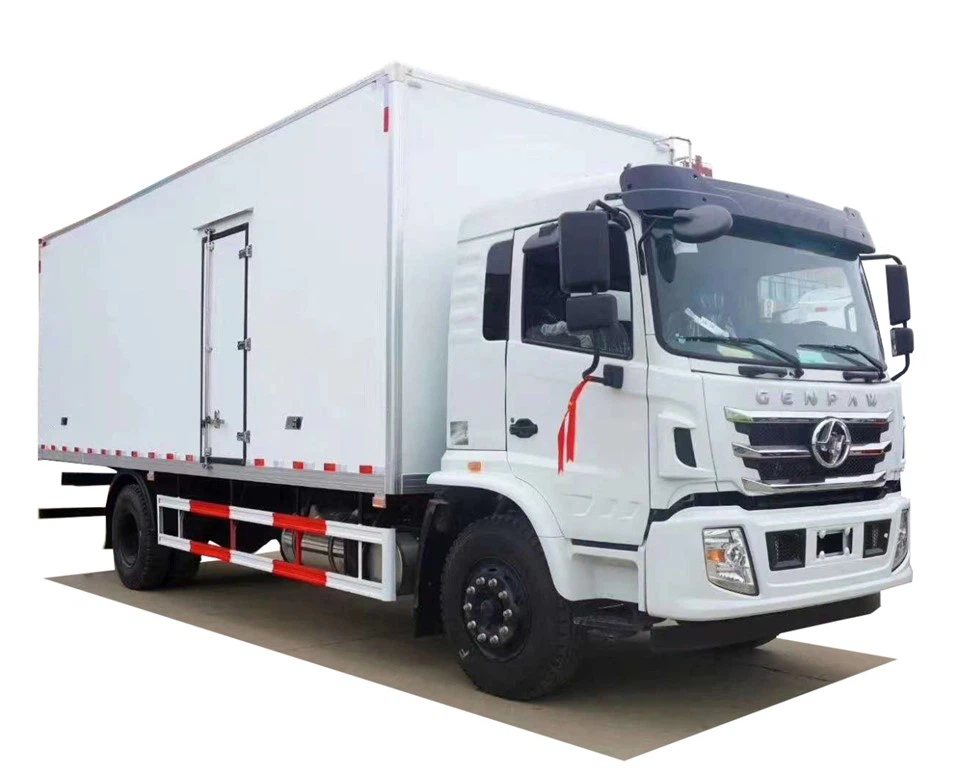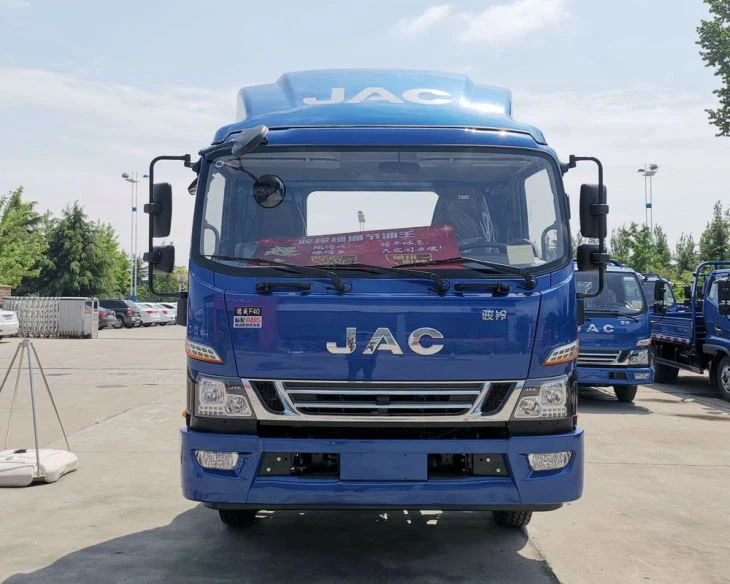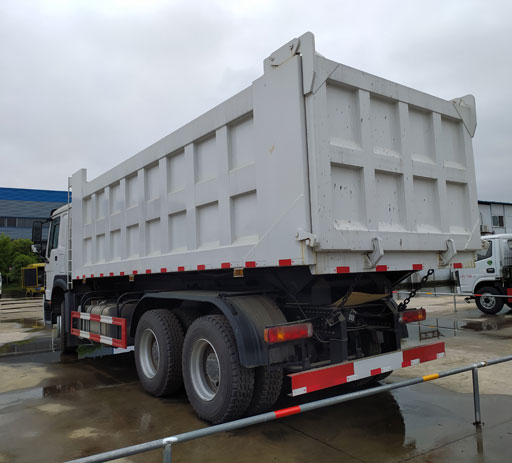Understanding Commercial Vehicles: Definition, Types, and More

Introduction
In the world of transportation, the term “commercial vehicle” appears frequently, yet many people may not fully understand its definition or implications. Commercial vehicles play a crucial role in various industries, facilitating the movement of goods and services. This comprehensive article will delve into what a commercial vehicle means, exploring its different types, uses, the regulatory framework surrounding it, and practical examples. By the end, readers will have a solid grasp of the significance of commercial vehicles in daily life and commerce.
What Does Commercial Vehicle Mean?
A commercial vehicle is defined as any motor vehicle that is specifically designed and used for transporting goods or passengers for commercial purposes. Unlike private vehicles, which are primarily used for personal transport, commercial vehicles are built to handle regular, heavy-duty transportation tasks and are often subject to stricter regulatory oversight.
Key Characteristics
Commercial vehicles typically have distinctive features that set them apart from regular vehicles:
- Design: Built with durability and efficiency for heavy usage.
- Load Capacity: Greater weight limits to accommodate cargo.
- Commercial Licensing: Require specific licenses to operate.
- Usage: Primarily for business-related activities.
Types of Commercial Vehicles
Commercial vehicles come in various forms, each serving different transportation needs. Here are some popular types:

1. Trucks
Trucks are among the most common commercial vehicles, designed primarily for carrying cargo. Their sizes can range from light-duty pick-up trucks to massive 18-wheelers. Here are some subcategories:
- Light-Duty Trucks: Ideal for small businesses, such as delivery services.
- Medium-Duty Trucks: Used for logistics and distribution.
- Heavy-Duty Trucks: Suitable for long-haul freight transport.
2. Buses
Buses are commercial vehicles meant for transporting groups of passengers. They are often used by public transport systems, schools, and charter companies. Types include:
- City Buses: Operate on fixed routes within urban areas.
- Coach Buses: Used for long-distance travel and trips.
- School Buses: Specifically designed for student transport.
3. Vans
Vans, such as cargo vans and passenger vans, are versatile commercial vehicles that suit various businesses, from deliveries to shuttle services. Their load capacity and layout make them excellent alternatives for companies needing space but may not require a full truck.
4. Specialty Vehicles
Some commercial vehicles are built for specific tasks. These include:
- Construction Vehicles: Cranes, bulldozers, and cement mixers.
- Refrigerated Trucks: Ideal for transporting perishable goods.
- Mobile Shops: Food trucks and mobile retail kiosks.

The Role of Commercial Vehicles in the Economy
Commercial vehicles are vital for economic activities across various sectors:
1. Freight Transportation
Commercial trucks are essential for the logistics industry, transporting raw materials, components, and finished goods across regions and countries.
2. Public Transport Systems
Buses and vans contribute significantly to public transportation, ensuring that people can access jobs, education, and essential services.
3. Service Industries
Many businesses, such as cleaning services, repair services, and food delivery, rely on vans and trucks to serve their clients efficiently.
Licensing and Regulation of Commercial Vehicles
Operating commercial vehicles involves strict regulations aimed at ensuring safety on the roads.
1. Driver Licensing Requirements
Commercial drivers often need a Commercial Driver’s License (CDL), which requires additional testing to demonstrate proficiency in operating larger vehicles.
2. Vehicle Registration and Compliance
Commercial vehicles must be registered with the relevant regulatory bodies. They also need to meet safety standards, including regular inspections and emissions tests.
3. Weight Regulations
Weight limits are enforced to maintain road safety and avoid excessive wear on infrastructure. Vehicles exceeding these limits may require special permits.
Tips for Choosing a Commercial Vehicle
When selecting a commercial vehicle, businesses should consider several factors:
| Factor | Considerations |
|---|---|
| Purpose | What type of goods or services will you transport? |
| Capacity | How much load do you expect to carry regularly? |
| Fuel Efficiency | Will you prioritize long-distance travel or local deliveries? |
| Maintenance Costs | What are the long-term costs associated with the vehicle? |
| Regulations | Are you compliant with local industry regulations? |
Examples of Commercial Vehicles in Action
To illustrate the importance of commercial vehicles, here are a few real-world examples of their usage:
1. Delivery Services
Companies like UPS, FedEx, and DHL rely on a fleet of delivery vehicles to ensure timely distribution of packages to customers globally.
2. Food and Beverage Industry
Restaurants often use vans and trucks to deliver ingredients, while food trucks cater to the public, establishing a mobile dining experience.
3. Construction Companies
Construction sites utilize various commercial vehicles, such as pickups for labor transport and heavy-duty trucks for material hauling.
Environmental Considerations
As the world becomes more focused on sustainability, the commercial vehicle industry is adapting through eco-friendlier options:
1. Electric Commercial Vehicles
With the rise of technology, many companies have started investing in electric trucks and vans to reduce their carbon footprint and fuel costs.
2. Regulations on Emissions
Regulatory bodies are enforcing stricter emissions standards, pushing manufacturers to develop more efficient engines and greener technologies.
Future Trends in Commercial Vehicles
The commercial vehicle sector is evolving rapidly. Some predictions include:

1. Autonomous Vehicles
Self-driving technology may redefine the logistics landscape, reducing labor costs and enhancing safety.
2. Connected Vehicles
IoT technology could lead to smarter fleets, optimizing routes and improving maintenance schedules proactively.
3. Enhanced Safety Features
Modern commercial vehicles are increasingly equipped with safety technologies to prevent accidents and ensure the safety of drivers and other road users.
FAQs About Commercial Vehicles
1. What is the difference between a commercial vehicle and a personal vehicle?
A commercial vehicle is used primarily for business purposes, while a personal vehicle is meant for individual use. Commercial vehicles are often larger and designed for transporting goods or more passengers.
2. Do commercial vehicles require special insurance?
Yes, commercial vehicles typically require commercial auto insurance, which offers different coverage options compared to personal vehicle insurance.
3. Can you convert a personal vehicle into a commercial vehicle?
While it’s possible, such a conversion usually requires adhering to local regulations, ensuring the vehicle meets safety standards, and getting a new license plate that classifies it as a commercial vehicle.
4. What licenses do I need to drive a commercial vehicle?
To operate many commercial vehicles, drivers usually need a Commercial Driver’s License (CDL), which includes passing specific tests to demonstrate their skills.
5. Are electric commercial vehicles available?
Yes, many manufacturers are now offering electric options for commercial vehicles, especially in the delivery and transport sectors, focusing on reducing emissions.
6. What are the maintenance requirements for commercial vehicles?
Commercial vehicles often require regular inspections, adherence to mileage-related servicing schedules, and specific maintenance based on the type of usage.
